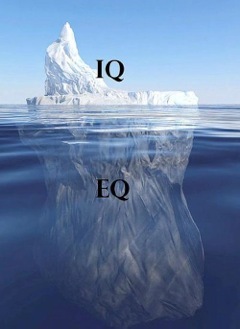'We the people... in order to form a more perfect union...'
There have been statements made throughout the history of the United States of America that have served in defining a nation bound together by certain beliefs, ideals, that forged a pathway, a blueprint for what it means to be free, and united in such cause. We Americans speak of freedom as equal to liberty - that is, a right or privilege -- and held to account by the very nature of a republic, in action. A republic, 'of the people, by the people and for the people.' But does being free allow us the liberty to act as something other than a unified nation with a common set of intentions, principles, objectives - standards even?
The Common Core is an attempt to standardize standards in American education. It does not represent an attack upon our freedom to deliver education through the only way education is delivered - of, by, for and through people. Common Core seeks to resolve the issue of 'one nation, under God, indivisible' by matter of state boundaries. And this is a good thing - the intent. The content; that is a matter for debate. And we Americans are great debaters indeed. It is in our historical bloodlines - our DNAtion.
There is no debating one central truth: we are no longer competing with one another across America for employability. We are competing with the world, and as such we must come to some level of understanding, agreement on the skills, knowledge and competencies required to succeed on the global stage. Only a nation and its future depend upon it.
To some, the Common Core is another pendulum swing. A required one, perhaps, but a pendulum swing for certain. We are in panic; this is true. Freaking out, really. US students are being outperformed on the international comparative examinations. Asia is on the rise. America is in decline. Life as we know it is over.
Well, not quite.
It depends on your perspective, and on what we value as the competencies and qualities students must possess in order to be successful members of the global workforce, and good citizens of a global society. In the areas of basic skills and knowledge, America is lagging behind our Asian (and other) counterparts. It is the quite natural by-product of one set of systems that are highly teacher-centered with a specific agenda to teach to the test through rigorous drill, and long hours in doing so. China and Korea are prime examples of such. The net result is predictable: superior performance on PISA and other international tests, and university entrance exams.
Now, if that were the end of the story, it would be a good story - for them. But it is not, and therefore it is not.
Students today, the 'human capital' of tomorrow, require a healthy balance of intellectual development -- the acquisition of basic skills and knowledge, or IQ -- with the development of social-emotional intelligence, the EQ. Creativity, communication, collaboration, problem solving, critical thinking, to name a few; these qualities or abilities to relate to one another and build effective bridges are equally if not more important in performing at the highest levels in an increasingly interdependent world. They also lend themselves to not only making a good living, but in living a good life. And in the area of EQ development, American education remains the marker for manifesting such.
The Common Core is an attempt to balance the equation across a United States and further IQ development across the country. And this will only be accomplished through the demonstration of greater intelligence through effective communication, collaboration and problem solving that once forged a nation; ushered forward in a later century unparalleled innovation; and now serves as the gateway to the re-invention of our republic.
Common Core is not the common enemy. We are. We are, to the extent that we allow for our sense of freedom to become an entitlement, and divisive in acting as one nation among many of which are more united these days than us with their agendas for educational excellence as precursor to societal progress. After all, what is the purpose of a union if not to act as one when considering something as fundamental to the preservation of a nation as education?
There is a gift awaiting those who can see beyond such disability, to greater possibility. Our nation's founding fathers knew this. They manifested a new nation through this. And what they left us with is just that -- possibility. As Benjamin Franklin once responded when queried on what had just taken place inside the halls of Independence Hall during the Constitutional Convention of 1787, 'A republic -- if you can keep it.'
The Common Core recognizes we are one nation, and as such require an established set of national standards for achievement in education. What we must ensure through a focused, coordinated - dare we say united - effort in the implementation of such is equal access to quality education for all.
Anything less will be less. And we simply cannot afford less, as we aspire to be more.
David Scott Clegg is the author of the award-winning novel The Longest Distance. He is the Managing Director of The HEAD Foundation, a global education think tank; and Founder of UNITE Education.



